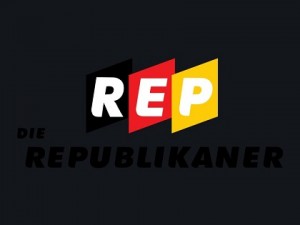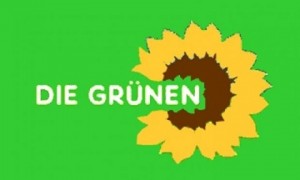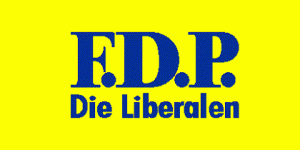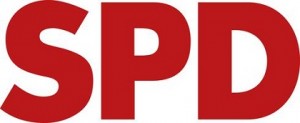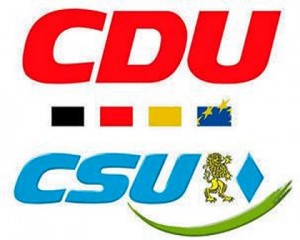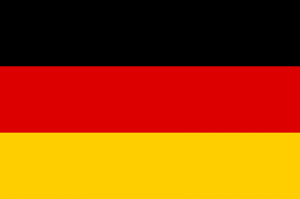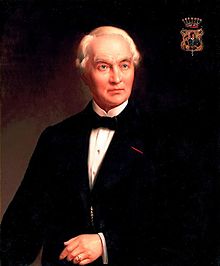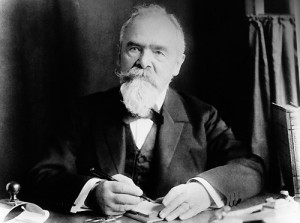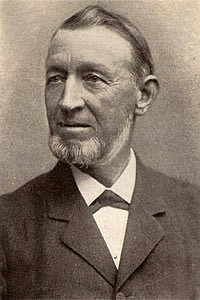On the opposite end of the political spectrum from the Greens are two parties of the far right, the Republikaner (Die Republikaner--REP), with about 23,000 members, and the German People's Union (Deutsche Volksunion--DVU), with 26,000 members. As of mid- 1995, these two parties had not gained sufficient support to win seats in the Bundestag, but … [Read more...]
Green Party of Germany
In the early years of the FRG, several minor parties representing a range of political views from the neo-Nazi right to the communist left played a role in the political system. Support for these parties dwindled over time, and, after 1961, the FDP was the only smaller party to cross the 5 percent threshold necessary to gain Bundestag … [Read more...]
Free Democratic Party of Germany
The Free Democratic Party (Freie Demokratische Partei--FDP) is much smaller than the CDU or SPD, but its limited electoral strength masks the party's inordinate influence. Prior to the 1994 election, the FDP had experienced its worst results in national elections in 1969 (5.8 percent) and 1983 (7 percent). Both of those poor showings occurred … [Read more...]
Social Democratic Party of Germany
Founded in 1875, the Social Democratic Party of Germany (Sozialdemokratische Partei Deutschlands--SPD) is Germany's oldest political party and its largest in terms of membership. After World War II, under the leadership of Kurt Schumacher, the SPD reestablished itself as an ideological party, representing the interests of the working class and the … [Read more...]
Christian Democratic Union/Christian Social Union
Following World War II, the Christian Democratic Union (Christlich Demokratische Union--CDU) was founded by a diverse group of Catholics and Protestants, businesspeople and trade unionists, and conservatives and moderates. The party espoused a Christian approach to politics and rejected both Nazism and communism. CDU members advocated conservative … [Read more...]
German Flag
The flag of Germany was adopted in its present form in 1919. It was readopted with the new constitution of 1949. It is a tricolour, made of three equal horizontal bands coloured black (top), red, and gold (bottom). There are several theories regarding the origins of the German flag color scheme and its meaning. The most popular theory is that the … [Read more...]
Extraparty Political Forces in Germany
German society is highly organized into associations that represent the occupational, socioeconomic, religious, and recreational interests of individuals--a tradition that dates back to the corporate guild system of the Middle Ages. Most Germans belong to at least one voluntary association, and many belong to several. The vast majority of these … [Read more...]
June 12 in German History
June 12, 1755 Immanuel Kant is granted the doctoral degree at the University of Königsberg. On the occasion Kant delivered an address, "On Easy and Thorough Instruction in Philosophy". June 12, 1817 Birth of Lothar von Faber (1817-1896) in Stein, Germany. He and his brother Eberhard built a family pencil business into a global … [Read more...]
June 11 in German History
June 11, 1842 Birth of Carl von Linde in Berndorf, Germany. He was a German engineer who developed refrigeration and gas separation technologies. Linde's first refrigeration system used Dimethyl ether as the refrigerant and was built by Maschinenfabrik Augsburg (now MAN AG) for the Spaten Brewery in 1873. He quickly moved on to develop more … [Read more...]
June 10 in German History
June 10, 1051 Death of St. Bardo in Paderborn, Germany. Bardo was a Benedictine monk in Fulda. He later became the abbot at the monasteries in Kaiserswerth and Hersfeld. In 1031 he became the Archbishop of Mainz. He was known for his piety and gentle nature. It was he who constructed the present Cathedral of Mainz. He died on a visit to … [Read more...]
- « Previous Page
- 1
- …
- 70
- 71
- 72
- 73
- 74
- …
- 118
- Next Page »
